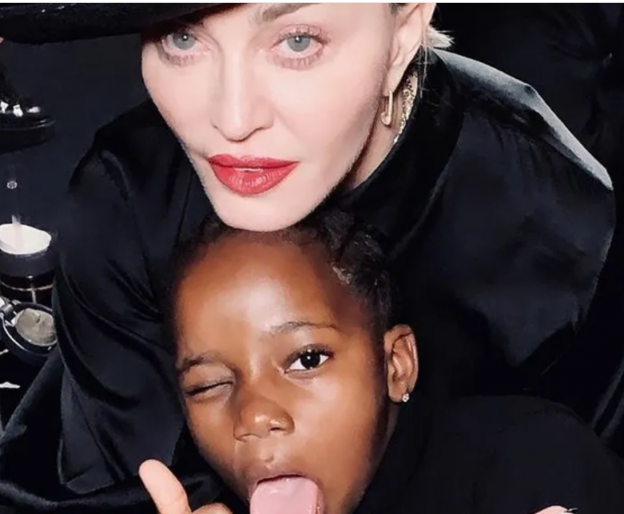
Mitt Romney’s son did it. So did Madonna. Angelina Jolie pioneered the social art of color-coding her family, even disclosing her intention to acquire a designer, United Colors of Benetton family. About her quest for color-coordinated couture kids she said this to Anderson Cooper:
We don’t know which—which country. But we’re looking at different countries. And we’re—I’m just—it’s gonna be the balance of what would be the best for Mad[dox] and for Z. right now. It’s, you know, another boy, another girl, which country, which race would fit best with the kids.
Clearly, some of the most sanctimonious, white, virtue-preeners around us go abroad in search of black kids to adopt. It’s almost as though these people seek an amulet with which to elevate and immunize themselves against any fault-finding. Look at me: I’m perfect.
There is so much poverty in the US, in general. There is so much child poverty in the US, in particular. There is so much poverty among white American children. On the facts, adopting across racial lines often proves to be fraught for both adopted and adopting parties. A minefield of sorts.
Amy Coney Barrett, a much-touted candidate for the Supreme Court, has a child or two from Haiti. Is one ever permitted to question public figures who sidestep their country’s poor, and go in search of kids with more exotic identities? Can we even ask?
UPDATE (9/23): Our reader below instructs that we dare not pose questions about a cohort that is distinguished by its phoniness. No can’t do.
I doubt very much that Madonna is able to love anyone but herself. Check out the demeaning way in which she displays the poor kid. The black child looks like a gangster, not like a girl, tongue hanging out, gesturing, while Madonna decks herself up to look feminine. Unkind. Horrid.



 print
print
Just be happy these kids had a chance to get out of poverty and be loved. Are they abusing or hurting them… No
Anyone with a passing familiarity with 19th Century English novels will probably remember Mrs Jellyby from Bleak House (Dickens’s best?), the telescopic philanthropist who neglected her children to the point of starvation in her concern for a tribe in Africa. Our modern do-gooder divas are worthy of an epithet every bit as ridiculous as that silly woman’s surname, maybe Jellyby’s Jezebels, something like that. Except that would be an insult to Mrs J. For one thing, Mrs Jellyby was fictional; for another, she wasn’t an importer.
Who was it, Aquinas maybe, who (channeling Aristotle, no doubt) first deduced that charity begins at home (on balance, one of your better cliches). With home as its epicenter, charity moves concentrically outward, depending on how much discretionary cash you have on hand, and your inclination to be charitable. Is that not self evident?
Have a family? Take care of them, make sure they don’t need for anything. Friends in need, friends in bad health, dire financial straits? Show them you’re a real friend. Everything good in your neighborhood? How about the family with the old beater in the driveway and cardboarded windows? The old guy in the wheelchair bringing home dog food from the store when he doesn’t own a dog? Maybe go see how they’re doing. Surrounded by health and happiness and still have money to burn? Maybe cut a check to the community food bank, the one run by the hard-headed pragmatist, the guy who knows who truly can’t help his homelessness and the one who‘s essentially healthy and more or less would rather be on an endless campout than working on the loading dock (you laugh, but we have our share of that species in our city, verified). And so on.
And there’s nothing virtuous about feeling charitable at the voting booth, when you’re doling out other people’s money. But you knew that.
I can’t get over how Madonna resembles the late Joan Crawford in this photo with the contorted kid (a prop).
People adopt from overseas because there’s virtually no chance of any of the child’s biological family members attempting to make contact, and in some cases, overturning the adoption altogether.